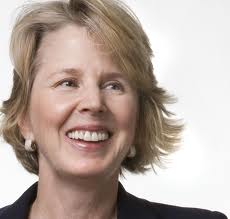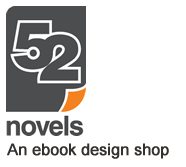But seriously, at least publishers are no longer in control….
Over a span of 19 years — from 1990 to 2009 — I authored eight books that  were published by mainstream publishers. Most of my experiences with publishers were wonderful, but my final experience in 2009 was horrendous. My ordeal with the company I have come to refer to as Evil Publishing Company inspired my article on A Storied Career’s parent site, Quintessential Careers, Getting a Book Published — Is It Worth It? I was writing about the tail end of an era in which mainstream publishers were in control of what got published and how books got marketed.
were published by mainstream publishers. Most of my experiences with publishers were wonderful, but my final experience in 2009 was horrendous. My ordeal with the company I have come to refer to as Evil Publishing Company inspired my article on A Storied Career’s parent site, Quintessential Careers, Getting a Book Published — Is It Worth It? I was writing about the tail end of an era in which mainstream publishers were in control of what got published and how books got marketed.
In just the short time since then, the entire publishing scene has flipped. As Debbie Weil (pictured) noted in her #story12 Reinvention Summit presentation, within the last year, much of the stigma of self-publishing has fallen away, and ebooks have taken off, now outselling print books.
After Evil Publishing Company, I was not keen to write a new book anytime soon. I started to get the itch again last year. I had had a long streak of having every book proposal I ever submitted get accepted. And why not? My first book (on cover letters) sold well over 100,000 copies. But one of my previous publishers quickly rejected my latest book idea. As Debbie pointed out, it’s harder than ever to get a book contract and much of an advance in these troubled times for publishers.
So why would anyone want to become a published author these days? How is it a game-changer? Doing so won’t make you rich (probably), but, Debbie says, it will make you credible, give you authority, and make you an established expert.
![]() As I seek to scratch my itch to publish again, I’m mindful of some of the great advice Debbie (see graphic for her company, Voxie Media above) shared in her session. Your book topic can’t just be what you’re passionate about; Debbie says; it has to solve a problem or fill a need for the reader. Even with all the options for self-publishing, Debbie says, it doesn’t matter how easy it is to publish if it’s not worth publishing. Would-be authors need to listen to what people ask.
As I seek to scratch my itch to publish again, I’m mindful of some of the great advice Debbie (see graphic for her company, Voxie Media above) shared in her session. Your book topic can’t just be what you’re passionate about; Debbie says; it has to solve a problem or fill a need for the reader. Even with all the options for self-publishing, Debbie says, it doesn’t matter how easy it is to publish if it’s not worth publishing. Would-be authors need to listen to what people ask.
Some of the approaches to topics that Debbie cited:
- Book of quotes about a topic
- 10 steps to _____.
- “The year I [did something remarkable].” Debbie cited The Happiness Project, but lots of other examples exist — the year I tried to live like Oprah, the year I lived biblically, the year I learned to be a memory champion, the year I cooked all the recipes in Julia Child’s cookbook, and so on. I would love to do one of these but haven’t come up with something remarkable enough yet.
- A business message in novel/novella form. Debbie cited Built to Sell. I’ve written about many others; see this post and this one.
Debbie also talked about short books, as short as 30 pages, for example. They may be tantamount to long magazine articles. She cited, for example, Kindle singles. After all, some books don’t need to be as long as they are. I’m currently reading a novel that could easily be a third as long as it is.
Read more of Debbie’s ideas and suggestions about self-publishing and my own experience with self-publishing in the extended entry. See below some of the resources for self-publishing Debbie cited.
If I self-publish my next book, coming up with the perfect reader-grabbing title, Debbie says, will be a significant challenge. One that does it for her is The $100 Startup.
It may be called self-publishing, but Debbie strongly recommends not doing it all by yourself. For one thing, you must have an editor; you may even need a ghostwriter.
Debbie focuses on ereader-type books, and recommends that self-publishers start with Kindle only, and submit books to the Kindle Select Program. She notes that lots of resources and outside vendors are available to format books for Kindle for you (see list at the end of the post).
start with Kindle only, and submit books to the Kindle Select Program. She notes that lots of resources and outside vendors are available to format books for Kindle for you (see list at the end of the post).
Simultaneous with my itch to write another book, I started to fantasize about ebooks, especially Kindle, as the key to my long, fruitless quest to actually make some money, a la the 50 Shades of Gray phenomenon. I decided to start with some books we’d put together for Quintessential Careers Press. I set aside this past February to learn how to convert books for Kindle. After reading some of the material and watching a video, I thought, “this is a piece of cake.” PDF was one of the formats authors could convert into the Kindle format, so I tried that process with a couple of the books we had in PDF. Yes, it was a piece of cake to convert them. Trouble is, they looked like crap. HTML is supposedly another format that will convert, but the HTML file I tried would not convert to Kindle. Ultimately, I learned I could reformat the books in Apple’s Pages app and save them as .epub files (which is actually a Nook format), and convert those to Kindle. I did it with three of our books, two of which have now been selling decently and making me a bit of dough, if not remotely at the 50 Shades of Gray level. My formatting experience convinces me that getting help with formatting is a great idea. It’s just that I’m poor, and my partner is, shall we say, frugal, so I’ll probably continue to try to format them myself.
 I didn’t submit these books to Kindle Select because they must be exclusive to Kindle for 90 days, and we wanted to continue to sell them through our site. However, that book I’m itching to write will start out on Kindle Select because it seems to be a great marketing program.
I didn’t submit these books to Kindle Select because they must be exclusive to Kindle for 90 days, and we wanted to continue to sell them through our site. However, that book I’m itching to write will start out on Kindle Select because it seems to be a great marketing program.
I also want to crowdsource a textbook on applied storytelling for iPad using iBook Author.
Which brings us to marketing. As Debbie pointed out, mainstream publishers do almost no marketing of most of their books. In my case, “minimal” would be the appropriate word (except for Evil Publishing Company, which did none). Thus, for mainstream-published author and self-published author alike, marketing becomes the second marathon after writing the book. Debbie mentioned several marketing approaches for self-publishers, including getting comfortable with marketing online, building a dedicated Web site for the book, collecting visitor emails, developing launch promotions, and creating a video/trailer for the book.
In my book, pun intended, being published by a mainstream publisher these days offers little advantage over self-publishing, so I’m leaning toward self-publishing future books. Of course, the decline of the gatekeeping represented by mainstream publishers is a mostly good thing, but also results in an awful lot of low-quality stuff being published.
Here are some additional resources that Debbie Weil and Reinvention Summit host Michael Margolis cited for writing and self-publishing:
- ebookarchitects
- 52novels.com
- bookbaby
- CreateSpace (print-on-demand books)
- Write a book in a weekend
- Smashwords
- iBooks Author (books for iPad)
- VoxieMedia (Debbie’s company)
- 48HourBooks.com
- Roundtable Companies
- The Domino Project
